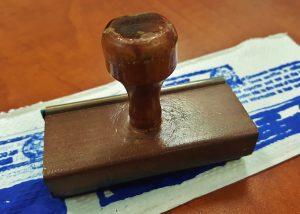
Are you planning to travel abroad and study in another country? As per statistics from Fall 2023, some 6% of American college students were studying abroad. Europe is every US student’s favorite destination, with Italy being the second home to most American undergrads. However, just as foreigners coming to America to study must provide an academic transcript translation to English, you’ll have to translate your degree from English for foreign university admission. You may wonder how to translate academic transcript the right way. This article will explain it all.
If you’re looking for international transcript evaluation, it’s necessary to get in touch with a professional, certified academic translator. In this article, we’ll explain the reasons why your degrees/diplomas must be translated for admission to a foreign university. Also, you’ll learn why it’s so important to hire a translator to create international transcripts by rewording the original ones.

Translating for Transcripts for Foreign Universities: Benefits and Challenges
If you want to step foot in your favorite university abroad, then you must pass a foreign transcript evaluation with a certified translation. University transcript translation plays a key role in facilitating your move to a foreign academic institute where you may continue your pedagogical journey. Here are a few benefits of translating your academic transcripts proactively:
- Quick Admission: If you’re applying to universities where the official language isn’t English (such as Italy, France, Germany, etc.), then you’ll have to translate your diplomas to demonstrate your academic achievements and your eligibility for admission.
- Proven Qualifications: These transcripts have details regarding your courses, grades, and relevant qualifications. You can convey this information to foreign colleges and get your qualifications quickly recognized with a translated transcript.
- Employment Eligibility: If you intend to get a job abroad while pursuing your degree, a translated transcript will come in handy in this situation as well. A potential employer will require translated transcripts to verify your educational background.

The Cost of Neglecting Transcript Translation
Let’s say you forgot about transcripts translation and didn’t make one. What would happen then? To put it nicely, not translating your academic transcripts will lower your chances of getting admitted to a foreign university. Not translating your diploma right away may lead to the following:
- You won’t be able to accurately represent your academic qualifications
- The admissions committee overseas may get a negative impression (especially if you’ve formatted it poorly or didn’t correct grammar mistakes)
- Many universities will outright reject your application if your degree is in another language than the one spoken in that country
- Re-submitting your application with a translated version is a time-consuming process and may end up being rejected in the end
- A poorly translated transcript will reflect badly on your language proficiency and you may not be able to leave a good impression
Also, don’t forget about international transcript evaluation to make the translated version credible. In the next section, we’ll explore the common mistakes amateur translators when working on people’s diplomas and how you can avoid this situation.

The Right Way to Translate Academic Transcripts
The world has become increasingly interconnected thanks to the trend of globalization. Many students in the world leave their homelands to study abroad. Data from 2021 shows that China was home to around a million international students while India hosted 375 thousand. Germany claims the third place! A student may go abroad to enjoy diversity, experience self-reliance, access quality educational courses, make new friends, see another culture up close, etc.
When someone wishes to come to the United States, they get their international transcriptsevaluated. It ensures that the student’s coursework and grades are converted into US equivalents. The same applies to a student who wants to study abroad. Organizations like the Worldwide Education Services (WES) provide this service. However, it’s important to have your degree translated into that country’s language first.
Many students use AI tools to translate their transcripts into German, French, Italian, Spanish, Arabic, etc. But it’s not good practice! A translation done by machines or amateur translators has these problems:

Spelling errors and grammatical mistakes
- Wrong course titles or inconsistent uses of capitalization
- Inconsistent margins, an unappealing layout, or an unprofessional look
- The transcript may end up looking like paraphrasing rather than translating
- Neglecting the use of reference materials to translate the document accurately
If you wish to study abroad and eventually avail yourself of working abroad opportunities, always work with a good translator. A professional translator with lots of experience will ensure that your translated transcript ends up creating a good impression on the admissions committee.
Tips to Translating Your Degrees/Diplomas the Right Way
You may wonder what a professional does differently. Here are a few ways a translator ensures that transcripts are translated accurately and faithfully for international universities:
Don’t Make It Look Like an Editorial
A translation is supposed to be a faithful reproduction of a document in another language, a rendering of its text in a different dialect. However, some amateur translators tend to leave editorials or comments rather than produce a word-for-word translation of an academic transcript. A good translator will reproduce an academic transcript impartially in the desired language without making it look like an editorial.

Always Work with Impartial Professionals
Imagine if you wish to study in France and your cousin, who speaks a little French, volunteers to translate your degree into the target language. Keep in mind that the objectivity of your translated transcript may be questioned if you, your family, or your friends have translated it. That’s why it’s better to simply hire an experienced translator to work their magic on your diploma.
Provide Reference Materials
However, even the most experienced translators may not understand the meaning of a certain word in a particular context. So, you may help them out by providing them with dictionaries or glossaries. What’d be even better is to give them a course catalog published by your American college.
Avoid Overtranslating Stuff
There’s no need to translate unnecessary documents. You should focus on only translating what’s crucial. Understand which documents have to be translated by going through the eligibility requirements of your chosen foreign college. That’s how you can save money and (translators’) time.

Keep Even Your Copies Clean
Put yourself in a translator’s shoes, and imagine a student gave you a barely readable print of their diploma. Would you be able to translate it accurately? Even smudges and other marks can make your document not easily readable. Give your translator the cleanest copy of your degree that you can find.
Final Words
Hopefully, now you know how to translate academic transcripts and who can do this job for you. You should not rely on amateurish translation; instead, get in touch with diplomas translation professionals with years of experience rewording students’ degrees. These professionals provide academic transcript translation to English and other languages and they can do the same for you.
Working with reputable translation agencies, such as TranslateSwift, will help you get admission to your favorite foreign university. So, order a swift translation of your academic transcripts right away. It’ll open the doors to global knowledge for you, and you’ll be able to settle abroad in the end.

FAQs – University Transcript Translation
When do I have to translate my university transcripts?
If you’re applying to a foreign university where English isn’t the primary language, then you must translate your transcripts. American students studying in China or Germany, for example, require this translation.
Who do I get in touch with to translate my academic transcripts?
Contact your university to see if they provide academic transcript translation to foreign languages. Get in touch with translation agencies. However, make sure your translated transcript is later notarized for added validity.
What documents do I have to provide for translating my degree?
The translator will need to see the original transcript or a certified copy of your degree. You must also give the translator a proper evaluation of your transcript that compares your achievements in the US education system to the target country.










